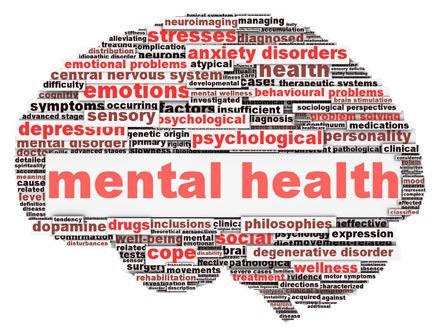Most people don’t assign the same level of importance to a mental health checkup as they would some kind of physical checkup.
One big reason for this is that while practically everyone feels comfortable about seeing their family physician at least annually, there is a certain negative connotation associated with visiting a psychologist or psychiatrist to assess mental health.
Yet your emotional well-being is just as important as your physical health, and by identifying early signs of such conditions as depression or anxiety, the most serious versions of these can usually be avoided. Early identification and treatment is especially helpful, because later stages often trigger some kind of personal crisis, which then makes treatment much more involved. This discussion will consider some of the most important points about mental health that everyone should know.
Benefits of seeing a psychologist or psychiatrist
While both these professionals study the brain and human behavior, psychiatrists are also medical doctors who can legally prescribe medications for their patients. One of the biggest benefits to people who commit to seeing a psychiatrist or psychologist is the emotional growth that generally results from a full program of talk therapy.
By undergoing a personal examination of your life, your relationships, and your feelings, you can gain a much better understanding of yourself and of those around you. This in turn will help to reduce the frustration you feel from various sources, and to manage your emotions much more competently. In the end, you should be able to lead a much more satisfying life.
Frequency of mental health disorders
According to the National Alliance on Mental Illness, about 18.5% of all adults in the US experience some kind of mental illness in any given year, and of those, about 4.2% are subject to an illness or disorder which significantly constrains at least one major life activity. Approximately 7% of all US adults undergo at least one bout of depression annually, and more than 18% of adults experience some kind of disorder related to anxiety, for instance phobias or obsessive compulsive behavior. However, more than 66% of Americans who have some kind of mental illness live in a normal community, and have very productive lives.
Trends for those undergoing treatment
It is estimated that somewhere between 70% and 90% of all people undergoing therapy for some kind of mental disorder experience a major lessening of symptoms, and a significant improvement in their quality of life after having gone through treatment. The number one cause for people seeking counseling or treatment is depression, and in the vast majority of these cases, the condition is rendered more manageable after proper care and counseling.
Mental health checkups vs. physical checkups
When mental health issues go untreated, they can eventually lead to hospitalization, and then a long period of emotional recovery might be necessary. Ideally of course, it would be far better to check on your emotional state of well-being as often as your physical health, so that warning signs can be identified and more serious issues don’t have a chance to become ingrained.
Having a mental health checkup is just as important, and should be conducted with the same regularity, as a physical checkup. This doesn’t mean people should schedule a visit with a psychiatrist or psychologist every six months along with their normal doctor visit, but it does mean that any emotional issues like depression, stress, or anxiety should be brought up at a physical exam, and discussed with a physician for potential referral.



